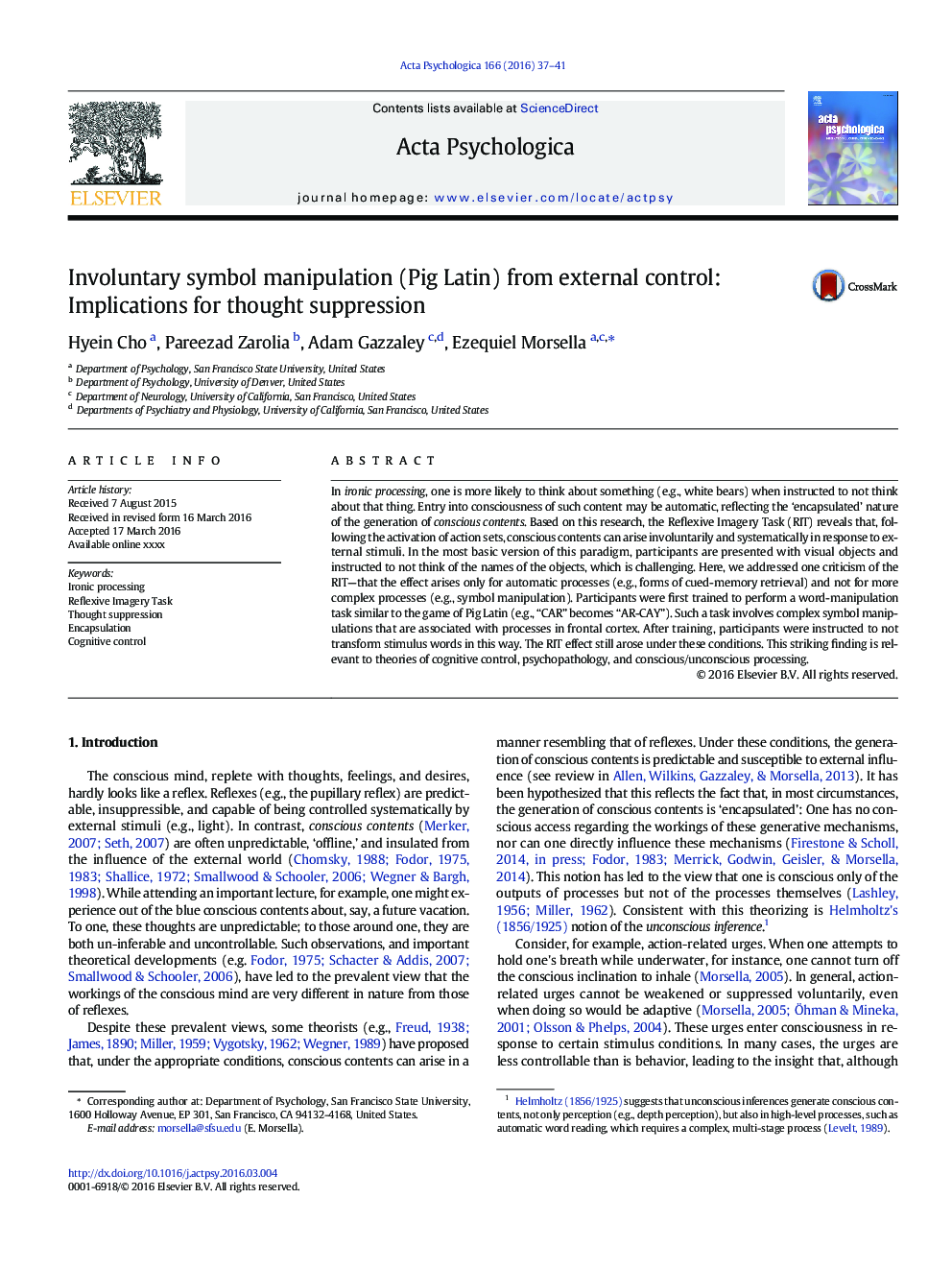| کد مقاله | کد نشریه | سال انتشار | مقاله انگلیسی | نسخه تمام متن |
|---|---|---|---|---|
| 7277095 | 1473592 | 2016 | 5 صفحه PDF | دانلود رایگان |
عنوان انگلیسی مقاله ISI
Involuntary symbol manipulation (Pig Latin) from external control: Implications for thought suppression
دانلود مقاله + سفارش ترجمه
دانلود مقاله ISI انگلیسی
رایگان برای ایرانیان
کلمات کلیدی
موضوعات مرتبط
علوم زیستی و بیوفناوری
علم عصب شناسی
علوم اعصاب شناختی
پیش نمایش صفحه اول مقاله

چکیده انگلیسی
In ironic processing, one is more likely to think about something (e.g., white bears) when instructed to not think about that thing. Entry into consciousness of such content may be automatic, reflecting the 'encapsulated' nature of the generation of conscious contents. Based on this research, the Reflexive Imagery Task (RIT) reveals that, following the activation of action sets, conscious contents can arise involuntarily and systematically in response to external stimuli. In the most basic version of this paradigm, participants are presented with visual objects and instructed to not think of the names of the objects, which is challenging. Here, we addressed one criticism of the RIT-that the effect arises only for automatic processes (e.g., forms of cued-memory retrieval) and not for more complex processes (e.g., symbol manipulation). Participants were first trained to perform a word-manipulation task similar to the game of Pig Latin (e.g., “CAR” becomes “AR-CAY”). Such a task involves complex symbol manipulations that are associated with processes in frontal cortex. After training, participants were instructed to not transform stimulus words in this way. The RIT effect still arose under these conditions. This striking finding is relevant to theories of cognitive control, psychopathology, and conscious/unconscious processing.
ناشر
Database: Elsevier - ScienceDirect (ساینس دایرکت)
Journal: Acta Psychologica - Volume 166, May 2016, Pages 37-41
Journal: Acta Psychologica - Volume 166, May 2016, Pages 37-41
نویسندگان
Hyein Cho, Pareezad Zarolia, Adam Gazzaley, Ezequiel Morsella,